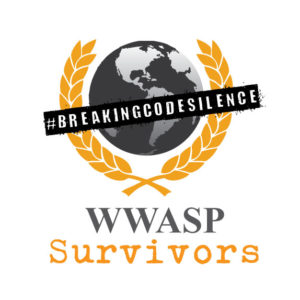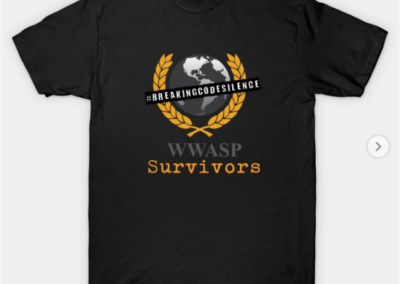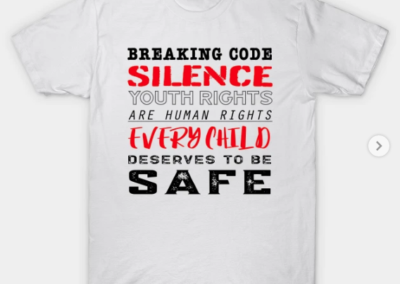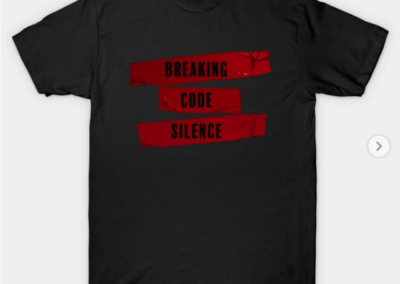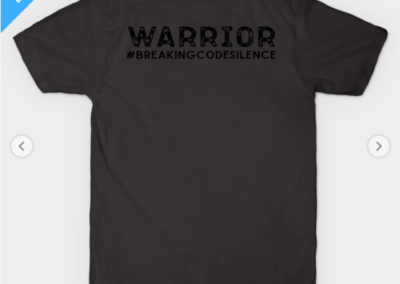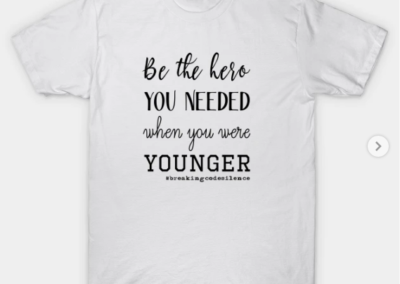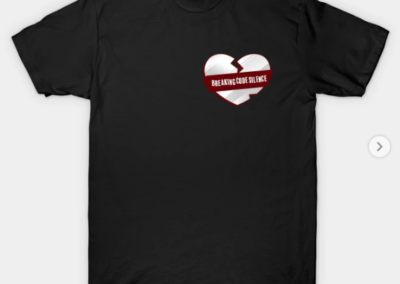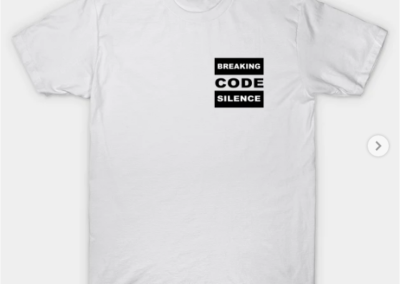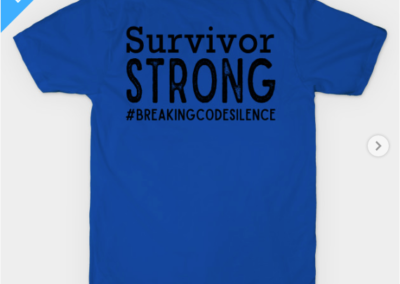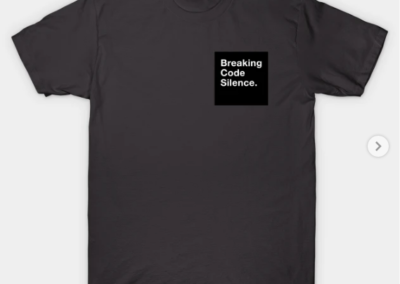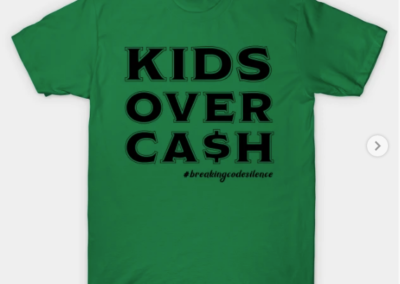Thousands of youth are held captive by the Troubled Teen Industry every year. With lack of government oversight, these Private Youth Programs operate with complete impunity. Children, between the ages of 5-18 years old, can be held against their will in facilities for years. Without oversight, this approach of behavior modification often results in institutional child abuse.
The “Troubled Teen Industry” is a network of Private Youth Programs, Therapeutic Boarding Schools, Residential Treatment Centers, Religious Academies, Wilderness Programs and Drug Rehabilitation Centers.
These Programs claim to rehabilitate defiant teens and instill strict values. Deceptive marketing tactics are commonly used to convince desperate parents that long-term residential treatment is the only way to save their child. These specialty programs exceed the tuition of most Ivy League Universities and often burdens taxpayers who unknowingly fund these institutions through Medicare or their local school districts.
Due to the total lack of Federal oversight and comprehensive industry standards, effectively none of these facilities are properly regulated by the government and are commonly unlicensed and unaccredited by any state or federal agency.
Countless former students from facilities within the Troubled Teen Industry have reported serious allegations of abuse and lasting negative psychological effects. This has been a unanimous experience from a variety of facilities that make up the TTI, both in licensed and unlicensed programs. Despite the prevalence of abuse complaints, state agencies refuse to investigate or intervene in regulating problematic programs, which often reopen and re-brand to escape their egregious reputation, once exposed.
#breakingcodesilence
#breakingcodesilence is a campaign which was created by WWASP Survivors in 2014 to spread awareness of the issues of the Troubled Teen Industry. This includes the abuse that occurs within the TTI treatment models and the long-term trauma former students suffer, as a result of this treatment, including Complex Post Traumatic Stress Disorder. The majority of survivors will endure continued physical and emotional trauma that can have a devastating and sometimes, deadly impact, on their lives. Suicide rates within the survivor community is concerningly high.
We advocate for a systemic change in the standards of mental health care and addiction services for youth. We defend the civil rights and safety of youth and argue for the standardized use of ethical, evidence-based methods of treatment.
Our mission is to bring an end to institutional child abuse.
What is Institutional Child Abuse?
When referring to institutional child abuse, we must first define what constitutes abuse in a therapeutic setting. Many private youth programs use behavioral modification models which focus on compliance and control. These methods can be cruel, unethical, and blatant violations of human rights. Use of such negligent procedures often lead to physical abuse, sexual abuse, and psychological trauma. The use of these methods listed below and their resulting trauma is what we refer to as institutional abuse.
- Physical Abuse
- Physical/Mechanical restraint and use of Prone (face-down) and pressure point restraints. Misuse of restraint as punishment.
- Use of chemical restraint methods (such as injection of heavy sedatives).
- Use of electro-shock techniques for the intent of behavior control.
- Stress positioning/infliction of physically painful punishments.
- Improper usage of medication resulting in overmedication/sedation.
- Use of extreme and/or long periods of calisthenics that result in exhaustion and dehydration.
- Psychological Abuse
- Behavior Modification which utilizes a severe punishment based behavior control.
- Solitary confinement/isolation used as punishment.
- Social ostracism used as punishment.
- Demanding higher level students police and punish lower level students.
- Lack of proper social interaction, prolonged periods of silence, forced “code” silence where speaking results in punishment.
- “Attack therapy” which uses mental, emotional, and verbal abuse as the treatment modality.
- Use of “cruel and unusual punishments” which can be defined as any punishment that is carried out in a way that humiliates, hurts, or psychologically affects the subject.
- Sexual Abuse
- Forced medical procedures/pelvic exams/abortions.
- Strip searches that are used repeatedly as a manner of humiliation.
- Sexual abuse, forced sexualized behavior, sexual shaming.
- Any of the methods used above for the sole purpose of “conversion therapy” or for any reason to discourage sexual orientation or chosen gender identity.
- Lack of trauma-informed care for sexual abuse survivors.
- Neglect
- Deprivation of sleep, adequate nutrition, and access to proper hygiene.
- Overcrowding in conjunction with unsanitary living conditions.
- Denial of clothing, including weather appropriate attire.
- Denial of adequate medical care, in a timely manner, by a licensed clinician.
- Denial of necessary medical treatment/procedures/medications.
- Being denied access to school as punishment, for example: 6 or more hours of detention or all day forced labor during school hours.
- Denial of Basic Human Rights
- Admittance without consent or due process by involuntary and forceful transport to the facility.
- Denial of direct and unmonitored communication with law enforcement, legal representation, and child protective services.
- Monitored phone calls with parents and retaliation, if abuse is reported.
- Mail censorship.
- Forced labor.
- Evasion of Industry Accountability
- Operating as a private/unlicensed/unregulated “treatment center” without being subject to regulation of clinical standards in patient care.
- Accredited by Program Trade Organizations that DO NOT properly monitor or enforce standards of care to ensure the safety and wellbeing of all students. Often spearheaded by the program owners themselves and only misrepresented as a third party “accreditation” agency. Membership status does not depend on proof of standards being met, only requirement is payment of dues. Agencies such as (but not limited to):
NATSAP – National Association Of Therapeutic Schools and Programs, NWAC – Northwest Accreditation Commission, NAAS – Northwest Association of Accredited Schools, OBHIC – Outdoor Behavioral Healthcare Industry Council, ACRC – Association of Children’s Residential Centers.
The Urgent Need for Reform
With a history of abuse, neglect, and wrongful deaths within the “Troubled Teen Industry” the urgency for reform to protect youth from institutional abuse is imperative. In the past month alone, states have begun taking action to protect their most vulnerable youth. Yet, are met with equal recognition that their state’s financial and infrastructural resources may be lacking.
After the California Department of Social Services announced that they are bringing all youth in out-of-state placements home by 2021 due to rampant abuse at the facilities, they began scrambling to find appropriate placement for their returning youth. Like California, other states such as Utah, Washington, and Texas have been forced to look at the limitations of services within their state and insufficient oversight that has led to ongoing systemic abuse in residential settings. With these issues being brought to the forefront of state’s agendas in recent months, it is the right time to develop new standards and systems.
In years past, we have supported attempts to investigate and reform the Troubled Teen Industry; including the GAO Reports on “Concerns Regarding Abuse and Death in Certain Programs for Troubled Youth” which resulted in Congressional Hearings Chaired by Sen. George Miller. Additionally, we supported the federal legislation that has been introduced to attempt to provide oversight, The Stop Child Abuse in Residential Programs for Teens Act. Unfortunately, this bill is yet to pass, therefore, rampant abuse has continued to be allowed without comprehensive oversight.
There is an inconsistent and negligent standard of care for Private Youth Programs across the country due to an ineffective system of regulation. State regulatory laws vary from minimally effective at reducing harm, to actively promoting and legally protecting the industry. Furthermore, a large subset of the industry operates under exemptions in licensing that are not being addressed by lawmakers. While some states have outlawed the use of several methods mentioned above, the majority have not. Some states might attempt to protect youth from institutional abuse within their borders, however, those rights and protections are circumvented by placing the child in out of state programs that do not operate under ethical regulations. In order to ensure the safety of every child in this country, we must utilize federal legislation to address the current inconsistencies in regulation, mandate minimum industry standards, and create regulatory systems that will be effective at protecting youth from institutional abuse.
WWASP Survivors requests that a new Government Accountability Office investigation be launched to properly investigate, define, and measure the impact of this industry. We believe that our lawmakers and the public are largely misinformed, or unaware of the detrimental issues youth are faced with in Private Youth Programs. We ask that a central database be created to quantify the number of programs in existence, (both licensed and unlicensed) estimate their economic impact, and to collect consumer complaints in order to provide this information to the public.
We support the re-introduction of the Stop Abuse in Residential Treatment Programs for Teens Act, however, we ask for a participatory role in addressing changes we believe are necessary to ensure effectiveness. Our first steps will be to mandate comprehensive youth/patient rights and define and prohibit the use of unethical methods. Complete restructuring of the licensing requirements for all Private Youth Programs is required. We must also set in place a National Advocacy Center to ensure the transparency and effectiveness of the departments regulating these programs.
We advocate for federal funds to be allocated to each state to research and develop a protection and advocacy system and invest in more community-based mental health and addiction services for at-risk youth. We can effectively divert families from displacing children out of state by having more comprehensive services available locally. By creating a “Wrap Around” system of less restrictive therapeutic services, we aim to eliminate the demand for long term residential Private Youth Programs to exist. This can be achieved by proposing amendments to The Child Abuse Prevention and Treatment Act, which has provided States with Federal grants to address the prevention and treatment of child abuse since 1974. By amending and reauthorizing CAPTA to specifically include the definition of institutional child abuse and incentivise the prevention and treatment of institutional child abuse and neglect, we can empower our states to address the systemic abuse that many children are facing in residential care. See: Child Abuse Prevention and Treatment Act
We support a federal ban on the use of restraints that impair breathing or communication, and seclusion. The use of these methods are archaic, dangerous, and unnecessary. As a result, they create an environment of violence and oppression that is often used as a means of control and coercion in the program. Programs frequently report that restraints are only used in the event that youth are a “danger to themselves or others” as this is the law that dictates their use of the method. However, evidence shows that restraints are often used as a form of punitive punishment. The use of bent wrist, limb submissions, and prone restraints are violent, painful, sometimes fatal. We advocate for a federal standard of training for all staff in the use of non-violent crisis intervention and de-escalation techniques. See: Keeping All Students Safe – 2021
We support any legislation aimed to protect the LGBTQ+ youth community from discrimination and abuse. In CA we were able to pass such a law with the California Community Care Facilities Act.
We advocate for the elimination of religious exemptions for residential religious boarding schools, and require licensing for all Private Youth Programs, regardless of religious affiliation.
“West Coast Pact”
According to an article recently published by the Salt Lake Tribune, within the last 4 1/2 years, California alone has sent 3,846 kids to Utah, where the Troubled Teen Industry thrives. Utilizing data collected from the Interstate Compact on the Placement of Children we can ascertain that a total amount of 11,767 children sent to Utah’s Troubled Teen Industry from out of state in the last 5 years. averaging a $60,000 year contract for each, this equates to $157.3 Million in annual revenue. These are funds which could be more appropriately utilized within the communities of the displaced children, to provide the least restrictive, evidence based, outpatient services.
We propose a tri-state pact between Washington, Oregon, and California (*all signing states) to retain all out of state placements for a standardized review and approval process by the sending states before any child is to be sent out of state for residential treatment. We propose to amend the current Interstate Compact on the Placement of Children laws of each state to delegate the “responsibility” ICPC application approval from the receiving state (current) to the sending state (ie: WA, OR, CA) We propose to establish an approval process that includes sensitivity training for all ICPC office case workers, a rigorous approval process with a third party medical assessment, and a transparency committee to ensure that any case that is deemed to be medically appropriate to be sent out of state, is appropriately matched with legally licensed facilities with ethically standardized treatment.
Through this pact we propose to:
- Establish a set of standards across WA/OR/CA to address out of state youth placement specifically addressing: Parent choice programs/Educational Consultants, IEP placement, foster youth placements, juvenile justice alternative placements.
- Develop in-state guidelines for residential treatment including: monitoring youth at RTCs and transfers between facilities, licensing agencies with oversight to receive state funding, patient rights, restrictions on the use of restraint and seclusion and minimum qualifications of staff with background checks (etc).
- Require tracking and notifying ALL states of placements, transfers, and any incidents or complaints against institutions. Develop a database to make this information available to each state’s departments and any substantiated complaints against the institutions public.
- Remove religious exemptions that allow religiously affiliated Private Youth Programs to operate unlicensed and unregulated by the state.
- Work with Medicare/Private Insurance to require, at minimum, licensing and standards of care required for approval of coverage in regards to residential treatment services.
- Research and develop resources for families to access community based mental health care; allocate funding for new resources to be established with standardized care.
- Allocate funding for research and development of least restrictive, evidence-based therapy for teen behavior issues, addiction and family dynamics.
- Utilize and expand funding for ACEs training in education and healthcare.
- Outlaw the use of escort companies to transport children to placements out of state and any country outside the US.
- Restriction of all out of state placements until the internal approval process is completed by both sending and receiving states.
- Absolute ban on all placements/transfers outside of the US. (This may exclude private adoptions, but will not exclude foster care placements into youth care facilities.)
- Institute temporary measures to retrieve children placed out of state in residential treatment facilities.
- Assess all currently placed children to be returned to their home state and provided with community based care, or transferred to residential care facilities within the home state that adhere to the pact’s standardized care.
Conclusion
Our positions have developed through great consideration and collaboration across generations of survivors and professional youth advocates. These generations of individuals who, for many years, have worked together to stop institutional child abuse are a testament to the reality that the past and current industry meant to serve struggling youth in our country is not functional and deeply harmful to countless children. Without clear changes in legislation on both the Federal and State level, our country’s vulnerable youth will continue slipping through the cracks and suffering as casualties to corporate profit. It is past time to reconsider our collective attitudes and our approach to treating children. The cost to future generations if this industry remains unreformed is too high.
Supporting Organizations
- breakingcodesilence.net
- Alliance Against Seclusion and Restraint – endseclusion.org
- NYRA – youthrights.org
- The Freedom Village Experience
- Community Alliance For the Ethical Treatment of Youth – CAFETY
Research:
- CAPTA – Child Abuse Prevention and Treatment Act
- SCARPTA – The Stop Child Abuse in Residential Programs for Teens Act
- ICPC – Interstate Compact on the Placement of Children
- KASSA – Keeping All Students Safe Act
- The California Community Care Facilities Act
Links to Related Articles, Studies and Government Information:
Publications about the Troubled Teen Industry:
Help At Any Cost – How the Troubled-Teen Industry Cons Parents and Hurts Kids – By Maia Szalavitz
Institutionalized Persuasion – By Marcus Chatfield
ADULT PERSPECTIVES ON TOTALISTIC TEEN TREATMENT: EXPERIENCES AND IMPACT – By Marcus Chatfield
Totalistic Teen Treatment: A Qualitative Analysis of Retrospective Accounts – By Marcus Chatfield
For more research please visit: https://wwaspsurvivors.com/troubled-teen-research/

